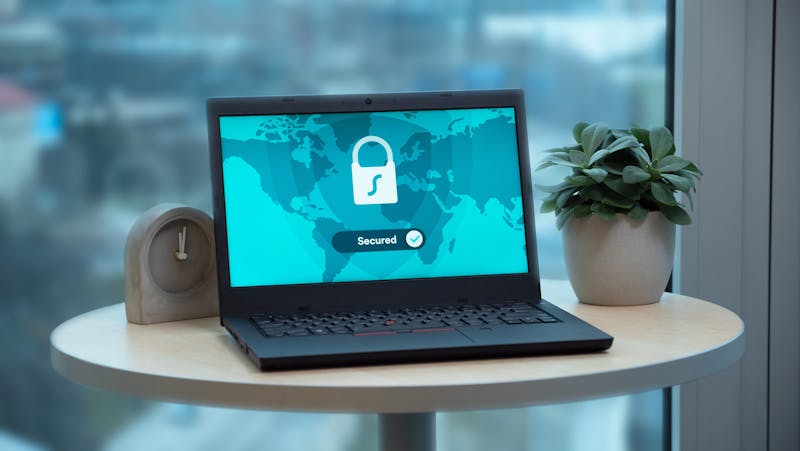Why Should You Outsource IT Support?
In a tech-first world, IT has become the single business function that links and powers all others. Look into the inner workings of any department–whether HR or logistics–and you’ll find a network of devices and applications quietly processing the information that keeps small businesses and conglomerates alike alive.
SMBs are now spending nearly half a trillion pounds to put the function in the hands of a third-party provider, with this set to grow to over a trillion pounds by 2030.
IT support outsourcing is not an all-or-nothing setup. It’s common for businesses to have a hybrid structure, outsourcing some functions while keeping more critical or sensitive areas in-house. Some processes are more outsourced than others. Below are three of the most common services you’ll find on offer from third-party providers.
1. Cloud Computing
Cloud computing has developed exponentially in the past decade, moving beyond data storage and occupying a space in numerous business functions. But hosting the infrastructure needed to keep systems on the bleeding edge is a considerable strain that can tax any budget.
Instead, businesses–especially small to medium sized companies–are turning to outsourcing. Infrastructure-as-a-Service (IaaS) model allows organisations to take advantage of the cloud, without the exorbitant overhead costs. The market is predicted to grow to $130 billion by the end of 2023, up from $108 billion the previous year.
2. Software Development
Enterprise is in the thick of digital transformation. Disruptive technologies like artificial intelligence, automation, and the IoT are creating new avenues for innovation and optimisation–should businesses be able to move fast and capitalise.
But putting together a talented development team takes time–an investment that many businesses find isn’t paying off. Companies spend an average of one month recruiting a single developer, and end up replacing one in every five hires. Businesses are instead turning to the ease of outsourced work, driving a 70 percent growth for the development outsourcing industry.
3. Security
Most small to mid-sized businesses cannot afford dedicated specialists, leaving those most vulnerable at the highest risk. Coupled with the shortage of talent in the field, hiring in-house is simply beyond the current capability of SMBs.
In an effort to patch gaps, many are turning to Managed Service Providers (MSP) to get a level of protection that is impossible to achieve on their own. A 2019 survey from Deloitte revealed that nearly all organisations outsource their security in some capacity, with 14 percent unloading half of their operations to a third-party provider.
Why Outsource IT Support?
IT support is the most outsourced function of B2B organisations locally, ahead of legacy processes such as accounting or printing. To help you decide what to outsource, here are the most salient benefits of working with an IT services provider like Evolvit:
Experts on Demand
Dedicated specialists are expensive–and difficult to retain. Talent poaching is rampant in the industry, and it’s nigh impossible to compete with deep pockets and the allure of larger companies.
Outsourcing levels the field for small to medium businesses. Working with a third-party provider places all that expertise and experience in your corner, without the steep price demanded by hiring in-house teams.
Scalability and predictability
Faced with an array of IT assets to implement and maintain, organisations can struggle to get a clear overhead view on costs and spend. Businesses can quickly find themselves saddled with hardware they no longer need, or ballooning expenses to cover for unexpected costs throughout an IT asset’s life cycle.
Outsourcing offers a stable and easily scalable alternative. The monthly fee protects organisations from sudden shifts, and arrangements can easily be adjusted based on how the business grows.
Tight IT Security
The consequences of data breaches make headlines, yet ongoing attacks themselves are silent, insidious events. Businesses take an average of 187 days to spot a breach, during which immeasurable damage has already been dealt.
Outsourced providers keep organisations on top of updates, keeping application vulnerabilities patched against evolving threats. Many providers also offer 24/7 monitoring as part of the service agreement, and are well-versed in data recovery and business continuity practices that’ll help businesses bounce back after an incident.
Conclusion
Outsourcing IT allows small and medium sized businesses to scale, whilst remaining nimble and staying competitive and keeping costs manageable. There’s a reason nearly half of all medium-sized businesses and a quarter of small businesses have contracted out IT support services. It works and it puts in place the infrastructure, security and systems to allow business owners and directors to focus on revenue growth and expansion.
Ultimately, the decision is dependent on a value exchange. There are pros and cons of having a dedicated in-house team, and there are pros and cons of bringing in a third-party provider. When and where you decide to in-house is dependent on what you do, but IT outsourcing should remain a core part of most modern SMBs make up as they grow.
If you’re looking to outsource your IT, our team of experts can assist in determining what you need. Book a free consultation with Evolvit today.






